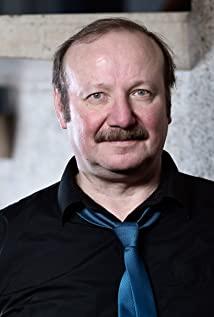From the beginning, the ideas and actions of radicals such as Baader were full of impulse and lacked adequate consideration. Loopholes everywhere have caused huge casualties and losses caused by the operation, and many innocent people have lost their lives. At the beginning, the radical right-wing young man tried to shoot and kill famous left-wing leaders and speakers. It was another reflection of the revolutionary courage and lack of thinking. In other words, the radical right-wing youth seemed to be doing useless work, but in essence, what the revolutionary group led by Baader-Meinhof did was no different from the right-wing youth. When prejudice and hatred erodes the human brain, the space for independent and rational thinking will be squeezed to an infinitely small size. Not only is the justice of the action itself, but every detail of the action lacks consideration and design.
If you try to explore the reasons for this seemingly immature revolution, you might be able to explain it from the standpoint of the revolutionaries. Revolutionaries are groups that try to challenge the most fundamental order of this society, lacking materials, technology, manpower, and legitimacy. In all respects, in the process of challenging the powerful state apparatus, revolutionaries are at a disadvantage, and this status can make many immature revolutionaries abandon the revolution or even betray the revolution. In the face of powerful opponents, human nature and weakness will inevitably have a fatal effect on the revolution. For firm leaders, this disadvantaged position in the revolution will prompt them to rush to attack the enemy, gain even a small advantage, or cause damage to the enemy, to prove the achievements and justice of the revolutionary cause. In other words, the revolutionaries are in a desperate state, and this state is not conducive to independent, rational thinking and rigorous planning.
The second part of the film fully shows the helplessness and sorrow after the revolutionary charm. The members of the second-generation Baader-Meinhof defeated the first-generation leaders in belief, organization, and skills, which heralded the failure of the revolution. They may understand the main targets of the revolution and what they are opposed to, but they do not understand their opponents and the legitimacy of the entire operation. If the first generation of leaders can still use more rigorous thinking and planning to inspire people, then the behavior of the second generation of revolutionaries is almost the same as that of the radical right-wing youth in terms of nature and appearance.
Another fatal weakness of the revolution is the inability to distinguish the enemy from ourselves. At the climax of the operation, Gudrun quoted Mao Zedong's words about distinguishing the enemy from the enemy, and the members of the second generation of Baader-Meinhof in the late period of the revolution just made the mistake of not being able to distinguish the enemy from the enemy. Moreover, they have not been able to fully understand and understand the enemy. When Baader-Meinhof committed suicide collectively after learning that the revolution had failed, the second generation of revolutionary members even believed that the state apparatus had killed the revolutionary leader. This is not only ignorance of the enemy, but also vagueness and blind determination of the revolution itself. In sharp contrast, the elder in the German state machine with black-rimmed glasses was able to understand the revolutionaries and defeat them. Unlike officials of other countries, the first thing the elder tried to do was to understand the revolution, not to destroy them. This is precisely the missing and fatal part of the Baader-Meinhof members. Know yourself and the enemy, a hundred battles will never end. In a confrontation, if you don't even understand your opponent, or even your opponent knows yourself better than you, then the result of this confrontation is self-evident. This is also the most complicated part of the revolution. The revolution includes so many groups with different positions and strengths, including the state apparatus, revolutionaries, civilians who support the revolution, civilians who oppose the revolution, and foreign forces. The positions and strengths of all parties have changed with the progress of the situation. Therefore, the success of a revolution requires not only courage and courage, but also the wisdom of leaders, the cooperation of revolutionaries, and the support of the people, that is, legitimacy.
View more about The Baader Meinhof Complex reviews











